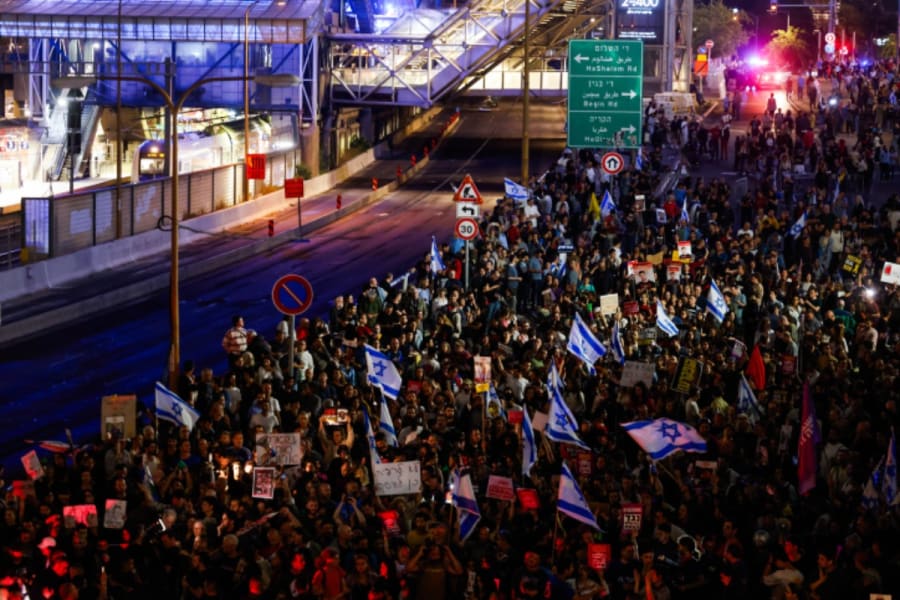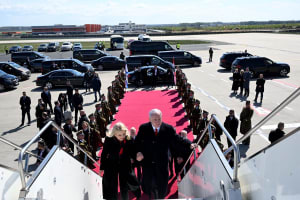Devious trap or result of Israeli pressure? Experts don’t agree on Hamas’ ceasefire proposal
Terror group's 'last-minute ceasefire proposal is a trap,' says 'Son of Hamas' Yousef

The announcement that the Hamas terrorist group had agreed to a ceasefire proposal on Monday evening was the latest U-turn in the saga surrounding the hostage deal negotiations, which have continued on and off since the ceasefire deal last November.
Israeli officials declared the announcement to be a ploy by Hamas to prevent the IDF's incursion into Rafah, adding that Hamas had agreed to an offer that was never approved by Israel
Israel's War Cabinet responded by deciding to go ahead with a focused operation in Rafah and Israel Defense Forces announced its capture of the Rafah border crossing on Tuesday morning.
”Hamas’s last-minute ceasefire proposal is a trap,” wrote Mosab Hassan Yousef, the son of a Hamas founder who later collaborated with Israeli security forces.
”Israel should not fall into Hamas's new trap unless the terror group commits to the release of ALL HOSTAGES and stepping down from power. This is a trick orchestrated by Hamas hosts, agents, and donors to prevent Israel from finishing 36 years of human tragedy at the expense of children and their future,” Yousef posted to 𝕏.
Israeli journalist Ben Caspit, a well-known critic of Prime Minister Benjamin Netanyahu and his government, stated that Yahya Sinwar, Hamas leader in Gaza, ”tricked” Israel.
”He waited for the last second... to change the playing field with a resounding, strange and unclear ’yes,’ while IDF tanks were already making their way to the outskirts of Rafah,” Caspit wrote in his column in the Maariv newspaper.
”The effect was immediate. Confusion in the ranks of the army (the troops were ordered to stop, then they were ordered to continue), a huge international commotion, and everyone is convinced that there is a last-minute change... Israel enters Rafah as the whole world is convinced that it is ignoring Hamas’ agreement to a proposal it itself proposed.”
”The Americans are angry, the Egyptians are angry, the Europeans are angry, and now try to explain to them that we are dealing with bloodthirsty murderers who are also liars,” Caspit wrote.
Israeli officials told the Axios news outlet that Israel felt it “got played” by the U.S. and the mediators who drafted “a new deal” without telling Israel. They also said the final changes to the draft were made in Qatar with U.S. knowledge.
”In such moments, a stable, deep, and mutually trusted relationship between the Prime Minister of Israel and the President of the United States is missing. Such a relationship is a strategic asset in precisely these situations,” Caspit wrote.
Caspit’s more right-leaning colleague at TV channel N12 News, Amit Segal, said the last-minute announcement by Hamas showed it was influenced by military and political pressure, like shutting down the Al Jazeera news channel in Israel, which serves as Hamas’ main mouthpiece for official statements.
"Those who are not busy with self-flagellation and addiction to the Biden administration will have to admit that a repugnant conspiracy is being hatched here to end the war over Israel’s head and without the hostages,” he charged.
"The decision probably stems from the pressure in Rafah or from another interest. The most significant thing is that, in recent days, the impression in Israel has increased, even after [U.S. State Secretary] Antony Blinken’s last statement and the announcements by the White House that Hamas had received American guarantees that will lead to the end of the war,” Segal said Monday evening.
"The ball is once again in Israel’s court, and now the Israeli government, led by Benjamin Netanyahu, must decide whether it intends to respond positively to the proposal and agree to the end of the war at the end of its first stage... or answer in the negative and look like the one who rejected the possibility of ending the war in the eyes of the world,” wrote Avi Issacharoff, journalist and co-creator of the Netflix series Fauda.
In his Ynet news column, Issacharoff called this development ”a big drama, especially since it puts Israel at the threshold of a long ceasefire and the Prime Minister of Israel in a difficult political situation.”
"If he says no to the Egyptian deal, it is possible that this will lead to Ministers Gantz and Eisenkot resigning from the government and will give the signal for very widespread public pressure... if he says yes to the Egyptian proposal, he will be forced to stop the operation in Rafah, and several of his ministers... have already threatened that accepting the Egyptian proposal means that the Israeli government has no right to exist,” he wrote.
Meanwhile, the Israeli government decided to continue the limited operation in Rafah, sending a low-level delegation to Egypt to continue the negotiations.

The All Israel News Staff is a team of journalists in Israel.
You might also like to read this:

















